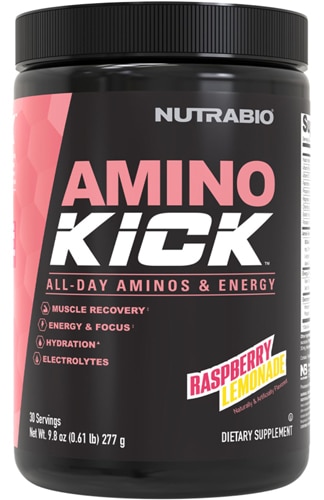[vc_row][vc_column][vc_column_text]A quick nap can get you back on track when you feel sleepy. Those who struggle with insomnia -- or who simply feel they need more rest -- often take siestas during the day to feel better-rested and rejuvenated.
But science offers mixed grades to the practice of
napping. Some studies have found that napping can boost your health, while others suggest that some midday shut-eye can actually undermine your well-being.
Here are the potential pros and cons of napping -- and some tips for doing it right.

The benefits of napping
Several recent studies have found evidence that taking naps can be good for your health. For example, a 2023 study found that napping might actually boost the size of your brain.
Those who nap on a regular basis increase their total brain volume and might reduce their risk of illnesses such as dementia, according to researchers at the University College London and the University of the Republic of Uruguay.
In fact,
nappers have brain volumes that represent the equivalent of 2.5 to 6.5 fewer years of aging compared to those who do not sleep during the day, according to the study findings.
Other research also has found links between napping and improved brain health.
A study out of China found that people who napped for between 30 and 90 minutes were able to recall words better than those who did not nap at all, or who napped for longer than 90 minutes.
Those who napped between 30 and 90 minutes also performed better at figure drawing, which is known to be a sign of healthy cognition.
Other research has found links between napping and better mood and emotional regulation.
“Napping is considered an effective means of combating sleep deprivation and counters the effects of stress and job burnout,” says Terry Cralle, a registered nurse, clinical sleep educator and spokesperson for the
Better Sleep Council.
Cralle says one research study compared three ways to “cope with the afternoon hump”: getting more nighttime sleep, taking a nap or using caffeine. “The
nap was found to be the most effective,” Cralle says.
Potential drawbacks of napping
But before you start turning in for a little shut-eye every day, it is important to note that other studies have found potential drawbacks to napping.
A 2023 study of more than 3,000 adults living in Spain -- where midday napping is common -- found that those who napped for more than 30 minutes were at increased risk for several negative health outcomes, including:
- Higher body weight
- High blood pressure
- High blood sugar
- Larger waist circumference
The study results suggest that how long you nap influences how midday sleep impacts your health.
Those who nap for less than 30 minutes are actually less likely to have high blood pressure than people who do not nap at all, according to the researchers.
A separate 2022 study found that older adults who napped more than one hour each day at a 40% higher risk of being diagnosed with Alzheimer’s disease than those who napped less than an hour a day.
In addition, those who napped at least once a day also had a 40% higher likelihood of developing Alzheimer’s than those who napped less often than daily, according to the findings published in “Alzheimer’s and Dementia: The Journal of the Alzheimer’s Association.”
Other research also has found an
association between napping and a higher risk of being diagnosed with dementia.
Napping also can pose less serious -- but still significant -- drawbacks. “Napping for too long during the day can interfere with falling asleep at bedtime,” Cralle says.
Long naps also can put you at risk for sleep inertia, which is sometimes known as “sleep drunkenness.” It is characterized by a feeling of grogginess.
“This can be problematic -- even dangerous -- under certain conditions,” Cralle says.
Should you nap?
All this mixed evidence is likely to leave folks confused about the wisdom of napping.
In some situations, habitual napping can indeed indicate the presence of a problem for some people.
“The urge to nap may be a sign that they are not getting enough sleep at night, which is associated with a higher risk of poor health,” Cralle says.
Increased napping can indicate the presence of chronic health conditions, including:
- Diabetes
- Heart disease
- Stroke
- Hypertension
- Depression
If you find yourself napping more often than you have in the past simply because you need to, it might be time to address the situation.
“An increased need for daytime napping or excessive daytime sleepiness should be brought to the attention of your health care provider,” Cralle says. ”This could be a sign of an underlying health condition, including a sleep disorder or a medication side effect.”
However, napping that is not related to a health condition might provide benefits such as:
- Restored wakefulness
- Improved alertness and performance
- Reduced fatigue
- Better motor performance and reaction time
- Enhanced creativity
“Some research has shown that napping for as little as 10 minutes can improve performance,” Cralle says.
Tips for better napping
Although the evidence remains inconclusive, there are hints in recent research that shorter naps might be beneficial, while longer naps can indicate the presence of a problem.
Cralle recommends skipping longer naps and aiming for shorter periods of shut-eye during the day.
“Naps of 20 to 30 minutes are commonly recommended so that you will not enter deep sleep, making you feel groggy upon awakening,” she says.
In addition, she says people who have regular schedules and who do not work overnight should try to nap before 2 p.m. to 3 p.m.
“Sleeping too long or too late in the day can interfere with nighttime sleep, leading to more napping,” she says, adding that “a vicious cycle can ensue.”
Whether or not you take naps, Cralle says the important thing is to consider sleep a “vital sign” and to talk to your doctor if you are not getting sufficient sleep every night of the week.
“Make sleep a high priority in your life,” she says.[/vc_column_text][/vc_column][/vc_row][vc_row][vc_column][vc_text_separator title="Featured Products" border_width="2"][vc_row_inner equal_height="yes" content_placement="middle" gap="35"][vc_column_inner width="1/3"][vc_single_image image="173853" img_size="full" alignment="center" onclick="custom_link" img_link_target="_blank" css=".vc_custom_1711224325504{padding-right: 7% !important;padding-left: 7% !important;}" link="https://www.vitacost.com/thin-energy-hydration-plant-based-drink-packets-mango-ginger"][/vc_column_inner][vc_column_inner width="1/3"][vc_single_image image="173855" img_size="full" alignment="center" onclick="custom_link" img_link_target="_blank" css=".vc_custom_1711224345311{padding-right: 7% !important;padding-left: 7% !important;}" link="https://www.vitacost.com/om-organic-mushroom-nutrition-energy-citrus-orange"][/vc_column_inner][vc_column_inner width="1/3"][vc_single_image image="173854" img_size="full" alignment="center" onclick="custom_link" img_link_target="_blank" css=".vc_custom_1711224367740{padding-right: 7% !important;padding-left: 7% !important;}" link="https://www.vitacost.com/verb-energy-energy-bar"][/vc_column_inner][/vc_row_inner][/vc_column][/vc_row]




